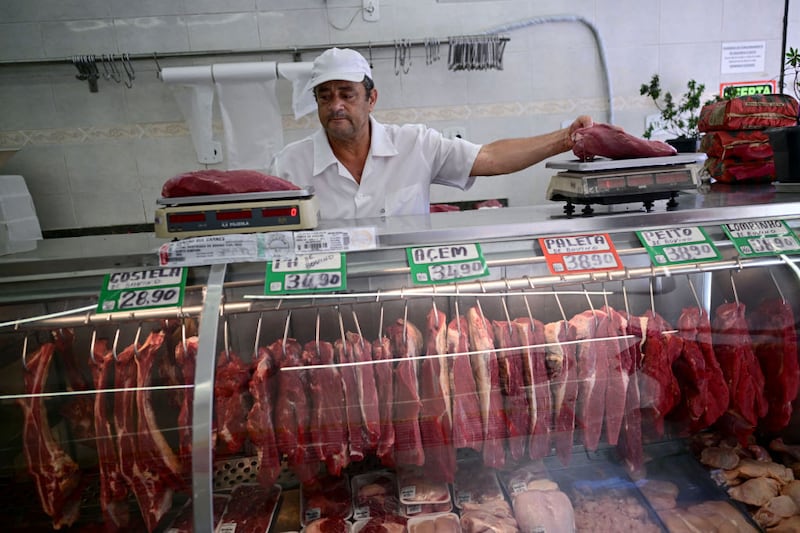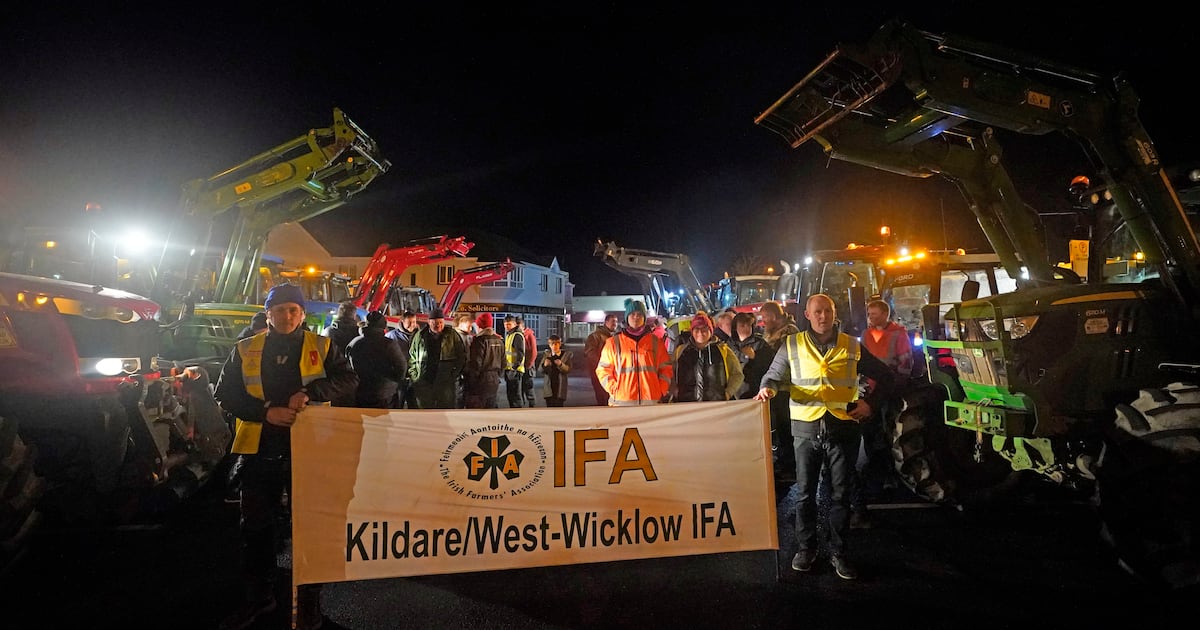Any flood of cheap South American beef into parts of the European Union would trigger a review under the proposed Mercosur trade deal as part of a new concession to get Ireland and others to back the agreement.
The proposed trade deal between the EU and Brazil, Argentina, Uruguay and Paraguay was tabled for approval on Wednesday, setting off what will be months of fractious debate among the 27 EU capitals about whether to back the agreement.
Irish farmers are opposed to the trade deal, fearing Argentinian beef could undercut the demand for Irish beef elsewhere in Europe.
The Government will come under serious pressure at EU level to drop its objections to the deal.
The European Commission, the EU’s executive arm that negotiated the Mercosur pact, has said it will open up a huge market for European businesses at a time when trade between the United States is being curtailed by the Trump administration’s import tariffs.
France had been leading the effort to kill the trade deal amid pressure from its farming lobby and left-wing opposition parties. The agreement needs the backing of a weighted majority of the EU’s 27 capitals to pass, as well as approval in the European Parliament.
Under the agreement some 99,000 tonnes of beef could be sold into the EU from Mercosur countries each year.
“This is about two steaks, or hamburgers per year, per European,” one senior EU official said of the Mercosur beef quota.
 A butcher weighs meat at a butcher shop in Rio de Janeiro, Brazil. Under the agreement some 99,000 tonnes of beef could be sold into the EU from Mercosur countries each year. Photograph: AFP/Getty Images
A butcher weighs meat at a butcher shop in Rio de Janeiro, Brazil. Under the agreement some 99,000 tonnes of beef could be sold into the EU from Mercosur countries each year. Photograph: AFP/Getty Images
The Government previously said it was opposed to the deal and changes were needed.
The commission has set out new measures to safeguard European farmers in a bid to alleviate concerns about the deal.
A review would be triggered in the event South American beef is suspected of flooding any part of the European market and forcing a steep drop in prices.
The EU would then have the power to pull an emergency brake and reimpose high import duties on Mercosur beef if its review established domestic farmers were facing threat of “serious injury” from South American competition.
The safeguard would also allow the EU to lower the quota of Mercosur beef permitted into its market.
It is understood the emergency brake could be pulled even if just a portion of the EU beef market was negatively affected by increased South American imports.
The commission has said it will monitor imports of sensitive products, such as beef and chicken, to keep a watch on the impact of the deal.
The Mercosur agreement has been negotiated in fits and starts over 26 years. A previous version of the deal was agreed by the commission and the Mercosur bloc in 2019 but failed to win necessary support inside the EU.
The Irish Farmers’ Association has said the Government must not “renege” on election promises to oppose the trade deal.
Francie Gorman, president of the farming lobby, said beef and poultry farmers should not have to pay the price of letting other European industries tap into new South American markets.
Germany is a strong advocate for the trade accord, because it will open up the South American market to its large automobile industry. Spain is also keen to adopt the trade agreement.
Italy is seen as a key swing vote, whose support would likely be crucial to form a blocking minority big enough to reject the trade agreement.
The French government has said it will examine the proposed extra safeguards in detail, adding changes made were “moving in the right direction”.
The EU executive body has said the deal will open up a lot of opportunities for dairy and cheese producers and the wine and spirits industries.
EU trade commissioner Maros Sefcovic said the union’s executive was “taking every precaution possible” to protect the European agricultural sector from losing out in the deal.
European Commission president Ursula von der Leyen has been working behind the scenes to bring around governments opposed to the deal.
An internal commission analysis estimated that an increase in trade with Mercosur countries could make up a third of the business lost due to US tariffs tamping down the flow of transatlantic trade.
[ Opinion: Ireland needs to stop holding out against MercosurOpens in new window ]
